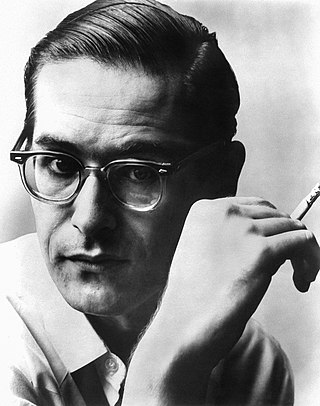
William John Evans was an American jazz pianist and composer who worked primarily as the leader of his trio. His use of impressionist harmony, block chords, innovative chord voicings, and trademark rhythmically independent, "singing" melodic lines continue to influence jazz pianists today.
John Alfred Mandel was an American composer and arranger of popular songs, film music and jazz. The musicians he worked with include Count Basie, Frank Sinatra, Peggy Lee, Anita O'Day, Barbra Streisand, Tony Bennett, Diane Schuur and Shirley Horn. He won five Grammy Awards, from 17 nominations; his first nomination was for his debut film score for the multi-nominated 1958 film I Want to Live!
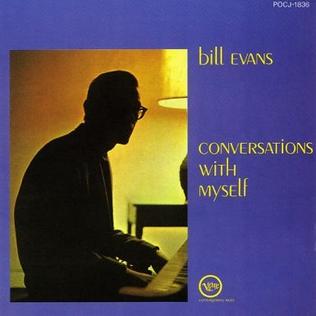
Conversations with Myself is a 1963 album by American jazz musician Bill Evans.
"The Shadow of Your Smile", also known as "Love Theme from The Sandpiper", is a popular song. The music was written by Johnny Mandel with the lyrics written by Paul Francis Webster. The song was introduced in the 1965 film The Sandpiper, with a trumpet solo by Jack Sheldon and later became a minor hit for Tony Bennett. It won the Grammy Award for Song of the Year and the Academy Award for Best Original Song. In 2004, the song finished at number 77 in AFI's 100 Years...100 Songs poll of the top tunes in American cinema.

You Must Believe in Spring is an album by American jazz pianist Bill Evans, recorded by him with bassist Eddie Gómez and drummer Eliot Zigmund in August 1977 and released in February 1981, shortly after Evans's death in September 1980.
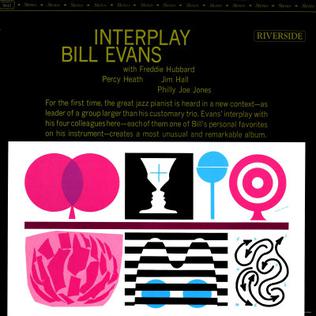
Interplay is a 1963 album by jazz musician Bill Evans. It was recorded in July 1962 in New York City for Riverside Records. The Interplay Sessions is a 1982 Milestone album that includes the entirety of this album, and tracks recorded for Riverside on August 21 and 22 of the same year with a different lineup . The Interplay Sessions peaked at number 26 on the Billboard Jazz Albums charts in 1983. The CD reissue Interplay adds another take of "I'll Never Smile Again" as a bonus track. At the Grammy Awards of 1984, Orrin Keepnews won the Grammy Award for Best Album Notes for the reissue.
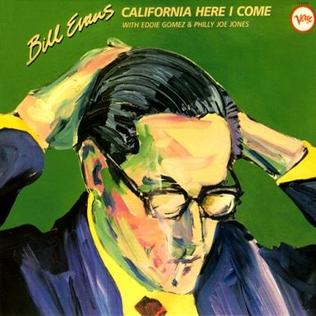
California Here I Come is a live album by jazz pianist Bill Evans. It was recorded in 1967, but not released on the Verve label until 1982 as a double LP. It peaked at number 12 on the Billboard Jazz Album charts in 1983 and was reissued on CD in 2004. The pieces were recorded at the Village Vanguard, where Evans had previously recorded the sets that appeared on the highly influential Waltz for Debby and Sunday at the Village Vanguard, both later comprised on the definitive collection The Complete Village Vanguard Recordings, 1961.

Alone is a solo piano album by jazz musician Bill Evans, recorded in the fall of 1968 for Verve Records, featuring a particularly notable 14+-minute performance of the jazz standard "Never Let Me Go." Evans contributed notes to the album, including the following statement:
Perhaps the hours of greatest pleasure in my life have come about as a result of the capacity of the piano to be in itself a complete expressive musical medium. In retrospect, I think that these countless hours of aloneness with music unified the directive energy of my life. At those times when I have achieved this sense of oneness while playing alone, the many technical or analytic aspects of the music happened of themselves with positive rightness which always served to remind me that to understand music most profoundly one only has to be listening well. Perhaps it is a peculiarity of mine that despite the fact that I am a professional performer, it is true that I have always preferred playing without an audience. This has nothing to do with my desire to communicate or not, but rather I think just a problem of personal self-consciousness which had to be conquered through discipline and concentration. Yet, to know one is truly alone with one’s instrument and music has always been an attractive and conducive situation for me to find my best playing level. Therefore, what I desired to present in a solo piano recording was especially this unique feeling.

I Will Say Goodbye is an album by American jazz pianist Bill Evans, recorded in 1977 but not released until January 1980. It was his final album for Fantasy Records, making the title quite appropriate.

Trio '65 is a studio album by American jazz pianist Bill Evans and his Trio, released in 1965.
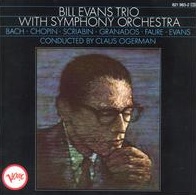
Bill Evans Trio with Symphony Orchestra is an album by American jazz pianist Bill Evans and his trio, released in 1966, featuring jazz arrangements of works by classical composers Granados, J.S. Bach, Scriabin, Fauré, and Chopin. The group is accompanied by an orchestra arranged and conducted by Claus Ogerman. Originals by both Evans and Ogerman are also included.
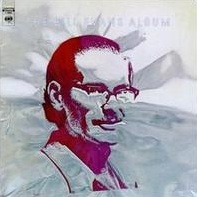
The Bill Evans Album is a recording by the jazz pianist Bill Evans, released in 1971 on the Columbia label. It was his first album to feature all compositions written, arranged, and performed by him. On the record, Evans plays both an acoustic and a Fender Rhodes electric piano.

From Left to Right is an album by American jazz pianist Bill Evans, released in 1971. It was recorded with his regular bassist Eddie Gómez and drummer Marty Morell and with an orchestra arranged and conducted by Michael Leonard. This was the first album on which Evans played a Fender Rhodes electric piano.

The Movie Song Album is a 1966 studio album by Tony Bennett. The album consists of songs from films, opening with the theme from The Oscar, in which Bennett had recently appeared. With this project of such high quality of song material and collaborators, he was to describe the album in his autobiography as his "all time favorite record".

You're Gonna Hear From Me is a live album by jazz pianist Bill Evans with Eddie Gómez and Marty Morell recorded at the Jazzhus Montmartre in Copenhagen in 1969 but not released until 1988 on the Milestone label. The same concert also produced the album Jazzhouse.

Re: Person I Knew is a live album by jazz pianist Bill Evans with Eddie Gómez and Marty Morell recorded at the Village Vanguard in New York City in 1974 and released on the Fantasy label in 1981. Additional recordings from Evans' 1974 Village Vanguard performances were also issued on the album Since We Met (1974). The name of the album is an anagram on the name of Orrin Keepnews, who produced for Evans while he was signed with Riverside Records, and who was one of his earliest champions.
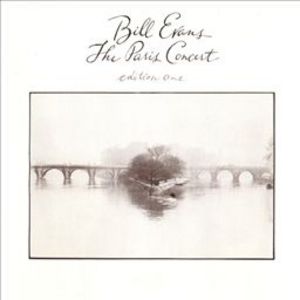
The Paris Concert: Edition One is a live album by jazz pianist Bill Evans with Marc Johnson and Joe LaBarbera recorded in Paris, France in 1979 and originally released on the Elektra/Musician label. Additional recordings from this concert were released as The Paris Concert: Edition Two.

Getting Sentimental is a live album by jazz pianist Bill Evans with Michael Moore and Philly Joe Jones recorded at the Village Vanguard in 1978 but not released until 2003 on the Milestone label.

Turn Out the Stars: The Final Village Vanguard Recordings is a six-CD box set live album by jazz pianist Bill Evans with Marc Johnson and Joe LaBarbera recorded over four nights at the Village Vanguard in New York City in 1980 and released on CD on the Warner Bros. label in 1996. A concurrent LP release was made on Mosaic.

The In Sound is an album by American jazz saxophonist Eddie Harris recorded in 1965 and released on the Atlantic label. The album features Harris' first recording of "Freedom Jazz Dance" which would become a jazz standard after featuring on Miles Davis' album Miles Smiles.


















